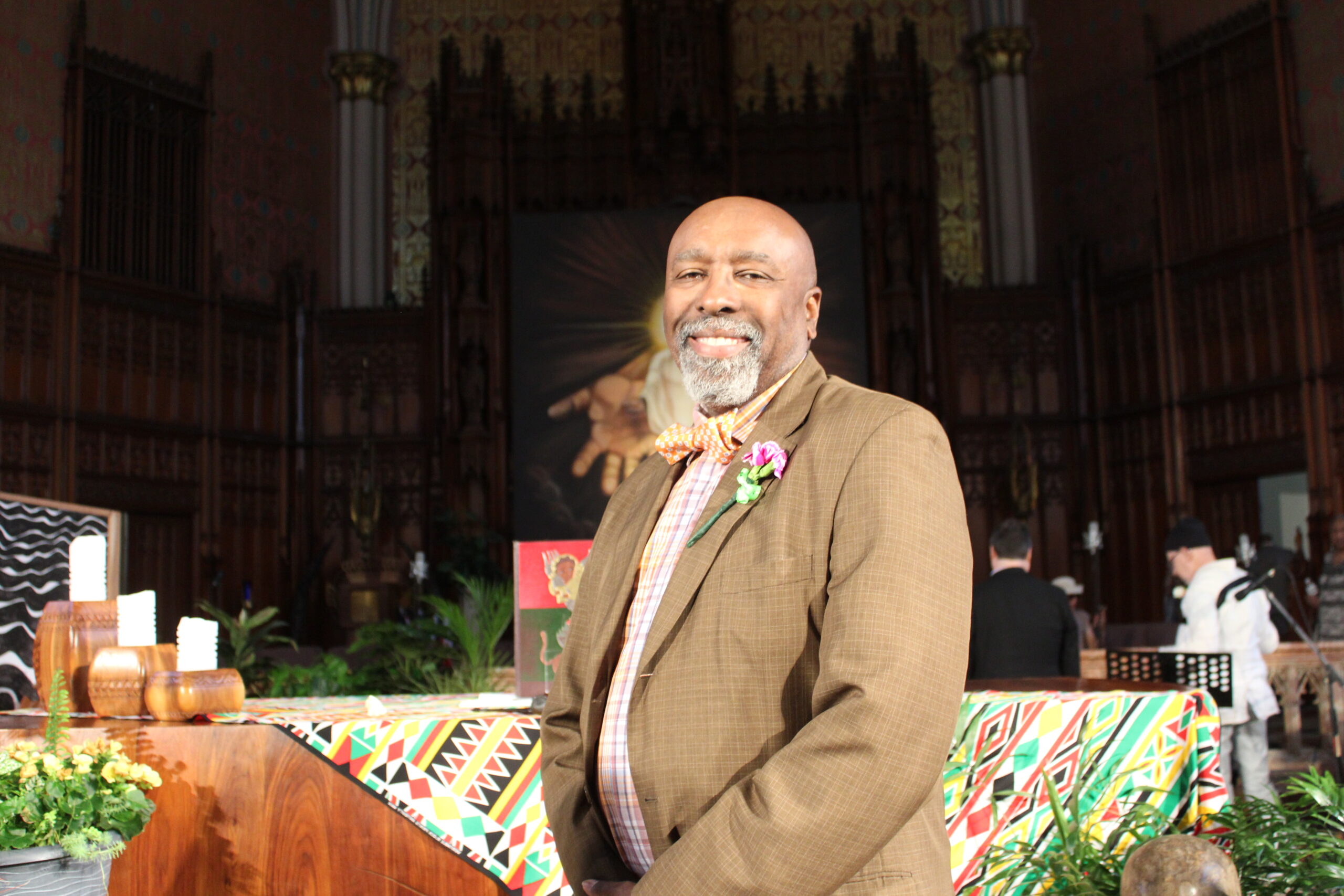St. Sabina member says some youth are raised in “gang families”
Father Michael Pfleger congratulated Michael Byrd, a member of St. Sabina for 36 years, on being promoted Superintendent of the Illinois Youth Center Chicago, one of five youth prisons in Illinois, where he plans to habilitate the youth by showing them love and trust because, he says, many are being raised in “gang families.”
A father of three, Byrd’s goal is to habilitate the young men through restorative justice, implementing rewards and consequences for good and bad behavior, while building trusting relationships with the youth, many of whom come from broken homes and many times from families where crime is a way of life.
Saying prisons don’t work for youth, Byrd said his job is not just to incarcerate “gangbanging Black and brown kids, but also to elevate, restore and encourage them.
“We are trying to habilitate them, not rehabilitate them,” he said.
“Most of the youth who are coming to us are not learned or skilled. They are not attending school. They are getting raised in gang families. I’ve got a youth there now whose mother is a gang member. His father is a gang member. His grandfather is in jail. His brother is in jail. It’s an epidemic.
Of the Center’s detainees, Byrd says, “We are not rehabilitating them. We are habilitating them. They don’t know righteous behavior. They know survival.”
A graduate of Holy Cross Elementary School and Quigley South High School, Byrd initially wanted to become a priest, enrolling in Miles College Seminary where he began studying for the priesthood. “That is how I knew Father Mike,” Byrd told the Chicago Crusader in an interview.
While a student at the seminary, Byrd met Father Pfleger. “He was part of a peace team that was administering to the young Black seminarians to encourage our vocation.”
When asked why he wanted to become a priest, Byrd said, “I believed I’m called to ministry. At a young age, I believed that ministry and changing people’s lives through the gospel, spreading the gospel, living the gospel, loving, giving, supporting and helping people is where my heart has been since I was a little boy trying to not step on the ants,” he chuckled. “That’s why I wanted to be a priest. I grew up in Catholic schools.”
Asked what changed his mind about being a priest, Byrd said, “I got discouraged by the priest scandals in the 1980s. I was in the seminary at the time. I got pretty angry at what I saw at some of the crime, hurt and cover up in the Catholic Church, especially here in Chicago.
“So, I decided I no longer wanted to be a priest among what looked to be so terrible for a while. I found another way to carry out my ministry. I may not be a priest, but I feel I am a minister in the gospel in some way with these young men who are incarcerated,” said Byrd.
He hopes to change the negative behavior mindsets of the 39 youths at the Center, whose ages range from 13-20. Byrd said through showing them more love “even if it’s tough love, and giving them consequences for their behavior and rewards for positive behaviors, the things we do to raise our children,” he explained, young men can turn their lives around.
“We have to do some of that restorative work for them, gain their trust and build a relationship with them.
“Most people are more successful in changing anything through relationships, like having someone to believe in and trust in each other,” Byrd said.
He is looking at adopting the Trust-Based Relational Intervention (TBRI) model, a therapeutic system that trains caregivers to provide effective support and treatment for at-risk children.
Reportedly, TBRI has been used in orphanages, courts, residential treatment facilities, group homes, foster and adoptive homes, churches and schools.
The three TBRI principles are Empowerment—attention to physical needs; Connection—attention to attachment needs; and Correction—attention to behavioral needs, according to the Texas Christian Institute of Child Development.
These principles reportedly serve as a “healing process” enabling both the caregiver and the child to develop a healthier relationship.
Byrd believes the TBRI model “will have an impact” on the youth.
“Our goal is to unify our staff so we can then have a vision for the youth collectively. I believe we can change the lives of these young men,” he stated.






